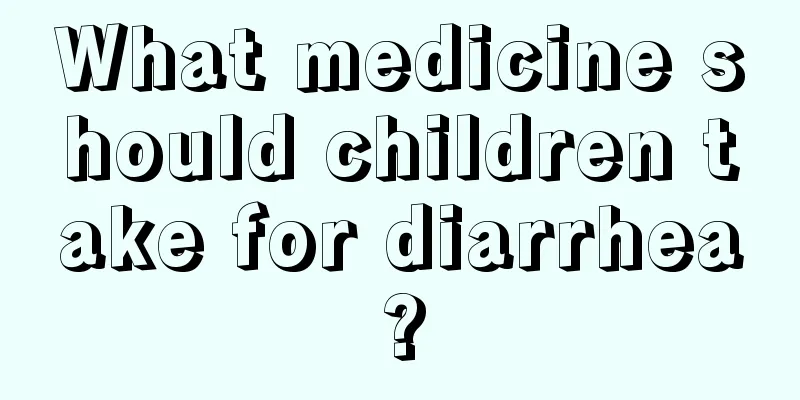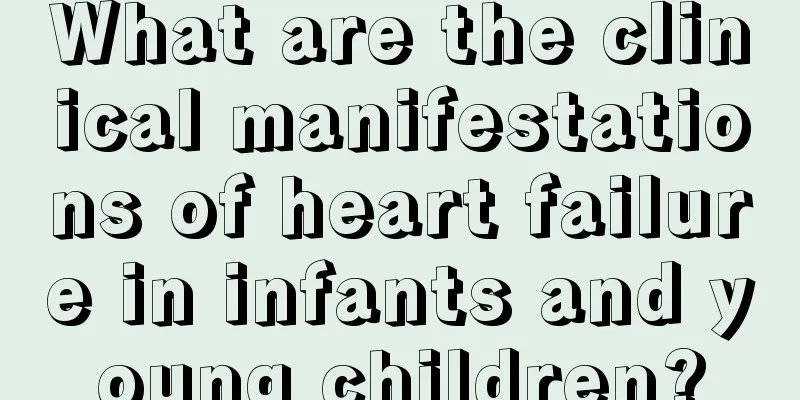What medicine should children take for diarrhea?

|
When babies are young, their spleen and stomach are weak, and their digestive functions are not yet fully developed, so they are very prone to diarrhea. Mothers are very worried when their babies have diarrhea. Frequent diarrhea can easily cause dehydration in babies and cause great harm to their intestines. Children's diarrhea should not be treated blindly, because children's body functions are not fully developed. Blindly using medication may harm the baby's body. The following is the correct medication for children's diarrhea. The specific medications for infant diarrhea are as follows: 1. Zinc supplement: Children under six months old should supplement 10 mg of zinc per day; children over six months old should supplement 20 mg of zinc per day. Helps improve the prognosis of children with acute and chronic diarrhea; 2. Supplement probiotics: Probiotics include Saccharomyces boulardii and Lactobacillus rhamnosus; 3. Montmorillonite powder: It can shorten the course of diarrhea and improve the cure rate; 4. Racecadotril: As an adjunct to oral rehydration salts, take before meals; 5. Antibiotics: For mild bacterial diarrhea, it is not recommended to use antibiotics first; for severe bacterial infectious diarrhea, antibiotics should be used under the guidance of a doctor. Lactic acid bacteria granules are a type of lactobacillus microecological preparation, and their main function is to improve the intestinal microecological environment. They are mainly aimed at the characteristics of young children's digestive system, where normal intestinal flora has not been established and they are difficult to resist other pathogenic flora, thus enhancing their own resistance. In the treatment of diarrhea in young children, it is generally only used for supportive treatment, viral infection or non-infectious diarrhea. There are many causes of diarrhea in children, which can be mainly divided into infectious diarrhea and non-infectious diarrhea. The pathogens of infection can be bacteria, viruses, parasites, fungi, etc. Common non-infectious causes include allergies, primary or secondary malabsorption, etc. If there are pathogens in the body of a young child, strengthening his or her own resistance cannot fundamentally cure diarrhea. Therefore, it is recommended to first complete a routine stool examination. If white blood cells are visible, it is mostly an invasive bacterial infection. It is best to use antibiotics, and the medication should be stopped only after three routine stool tests are negative. Do not stop the medication too early to avoid the formation of drug resistance. When antibiotic treatment is ineffective or the disease recurs, stool culture should be done in time to understand the type of bacteria and whether they are resistant to drugs. If no white blood cells are found in the stool test, it is mostly due to viral infection or non-infectious diarrhea, and microecological and intestinal mucosal protection therapy can be used. It is recommended to observe the child's mental state, record the quality and quantity of stool, vomiting, and urine volume; children with mild illness can take oral rehydration salts in small amounts and multiple times under the guidance of a doctor, while babies with severe dehydration require intravenous rehydration; add clothes according to the climate and pay attention to keeping the abdomen warm; stop eating foods that are difficult to digest, and give rice porridge, noodles, etc., and resume normal diet after 2 days. |
<<: Infants and young children have colds and coughs, beware of complications
>>: What to do if children have nephritis?
Recommend
What should a three-month-old baby with anemia eat?
As soon as the baby is anemic, parents will be ve...
Things to note when your baby falls out of bed
It is very common for babies to fall out of bed. ...
7 month old baby diet arrangement method
In daily life, many parents hope that their child...
What to do if your child's front teeth are crooked
A healthy and beautiful set of teeth can make a p...
Why is the child's hands and feet twitching?
For children, the cerebral cortex is relatively t...
Capillary pneumonia in infants
Have you ever heard of capillary pneumonia? Do yo...
Can mental retardation be cured? Introducing scientific therapy!
The so-called mental retardation usually refers t...
What is the age range of childhood?
As we all know, humans can be divided into differ...
What to do if your child keeps coughing at night
If a child keeps coughing at night, not only will...
What to do if your child has blisters in the throat
Throat blisters are quite common, not only in chi...
1 and a half year old baby walking unsteadily
Every change in the baby after birth is watched b...
Let neonatal dacryocystitis heal itself
Dacryocystitis in newborns, also known as congeni...
Why do children’s teeth grow unevenly?
When children grow to a certain stage, they will ...
Why do children suffer from ADHD? What factors does ADHD involve?
Under normal circumstances, pregnancy and childbi...
Can children get hemorrhoids?
Many people say that hemorrhoids only cause troub...









